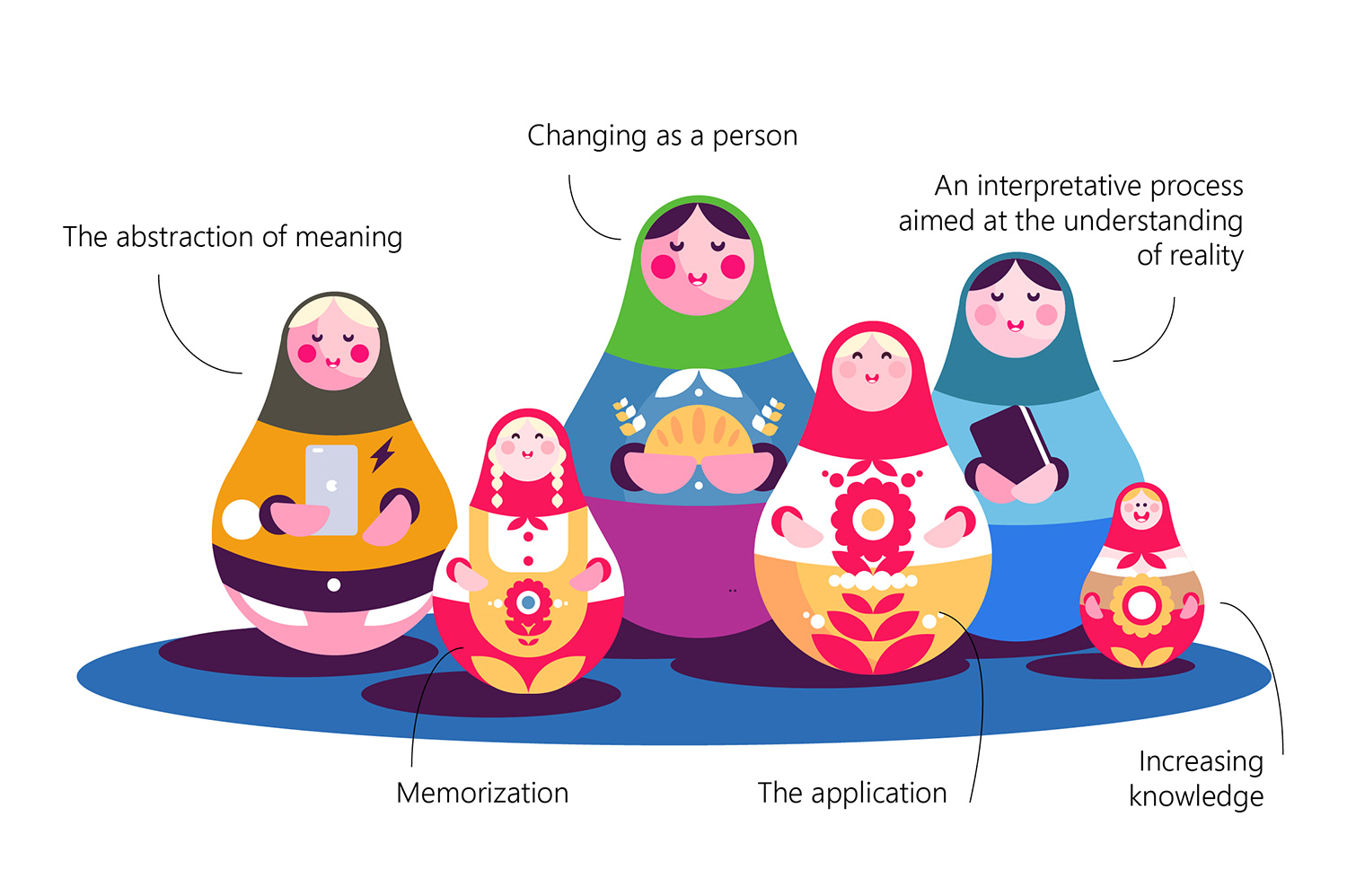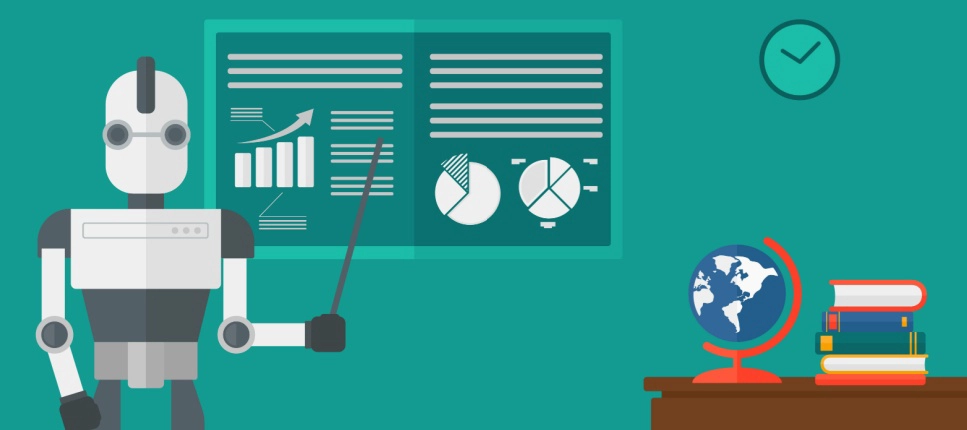Learning probably means different things to you than it does to your neighbour. Researchers who have explored the issue have found that there are six distinct ways of thinking about the learning process. This perception about learning is not trivial, since it influences how everyone approaches learning tasks, which ultimately affects the quality of their learning outcomes. Here are the six conceptions of learning and a few clarifications to help you understand them.
The Discoverers
The Swedish educational psychologist Roger Säljö was the first to observe that adult students may have different conceptions of learning; specifically, he identified five such conceptions (Säljö, 1979). His fellow countryman and colleague Ference Marton, with whom he developed the concepts of surface and in-depth learning, has, along with other colleagues, identified the sixth one a few years later (Marton, Dall’Alba and Beaty, 1993).
Like Russian dolls
 The six conceptions of learning form an interlocking hierarchy almost as a Russian doll system. Thus, the sixth conception encompasses the previous five; the fifth comprises the previous four, and so on. However, since the developmental hierarchy is in ascending order, the reverse is not true. It is therefore unlikely that a learner whose conception corresponds, for example, to the third conception would perceive learning as an internal change leading him or her to see the world differently (6th conception). Since we are talking about adult learners, the term “developmental” should be understood in the sense of “epistemological growth”. Thus, the first conception corresponds to the lowest developmental stage and the sixth to the highest, while the latter “adds an existential aspect to learning in that learning is seen as leading to a different view of the world” (Rosário et al. 2007).
The six conceptions of learning form an interlocking hierarchy almost as a Russian doll system. Thus, the sixth conception encompasses the previous five; the fifth comprises the previous four, and so on. However, since the developmental hierarchy is in ascending order, the reverse is not true. It is therefore unlikely that a learner whose conception corresponds, for example, to the third conception would perceive learning as an internal change leading him or her to see the world differently (6th conception). Since we are talking about adult learners, the term “developmental” should be understood in the sense of “epistemological growth”. Thus, the first conception corresponds to the lowest developmental stage and the sixth to the highest, while the latter “adds an existential aspect to learning in that learning is seen as leading to a different view of the world” (Rosário et al. 2007).
- Increasing knowledge
Increase the amount of information that constitutes our knowledge base.
- Memorization
Record information repeatedly to remind us of it if necessary.
- The application
Acquire facts, methods, etc. that can be retained and/or used in practice if necessary.
- The abstraction of meaning
Seek to understand the hidden meaning of things.
- An interpretative process aimed at the understanding of reality
Approach a concept from different perspectives.
- Changing as a person
Develop or change as an individual as a result of new understandings or appreciations, see the world differently.
*Conceptions 1 to 5 have been identified by Säljö (1979), and the 6th by Marton, Dall’Alba and Beaty (1993).
Our detailed article on this subject:
Related articles:
Author:
Catherine Meilleur
Creative Content Writer @KnowledgeOne. Questioner of questions. Hyperflexible stubborn. Contemplative yogi.
Catherine Meilleur has over 15 years of experience in research and writing. Having worked as a journalist and educational designer, she is interested in everything related to learning: from educational psychology to neuroscience, and the latest innovations that can serve learners, such as virtual and augmented reality. She is also passionate about issues related to the future of education at a time when a real revolution is taking place, propelled by digital technology and artificial intelligence.





